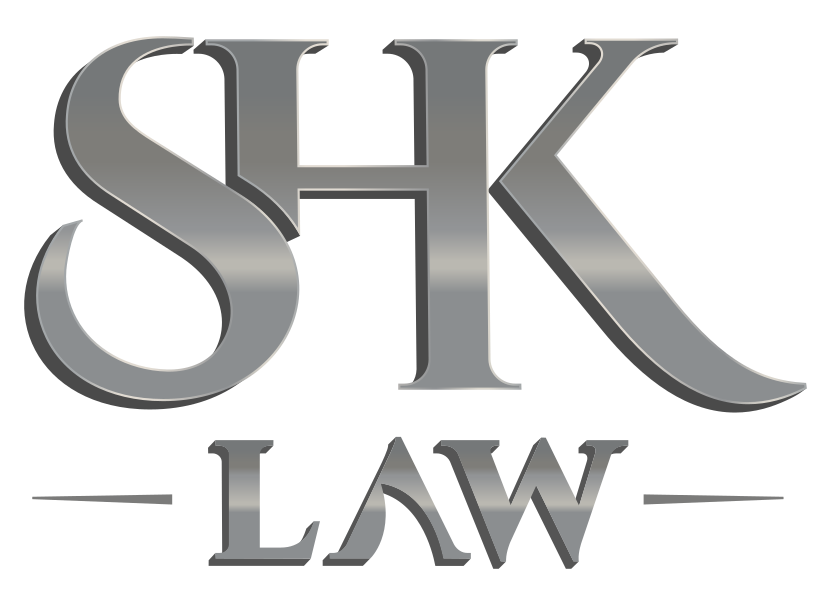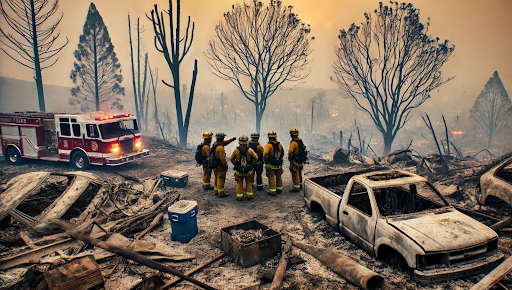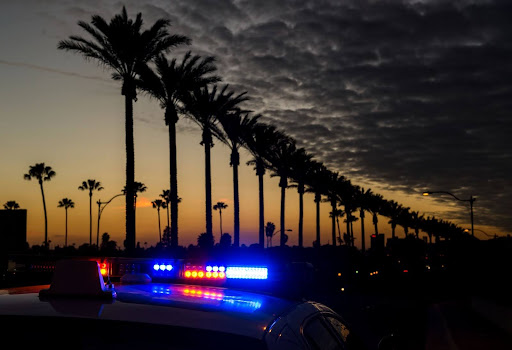We are proud to announce that SHK Law partners Brian J. Kim and Maureen K. Hennessey were recently featured in a Daily Journal article highlighting their groundbreaking $18.79 million verdict against a Los Angeles County McDonald’s.
UC Davis Resident Physician Killed in Sacramento Scooter Crash: Understanding the Legal Implications
We are proud to announce that SHK Law partners Brian J. Kim and Maureen K. Hennessey were recently featured in a Daily Journal article highlighting their groundbreaking $18.79 million verdict against a Los Angeles County McDonald’s.
SHK Law Files Lawsuit Against Starbucks in High-Profile Burn Case
We are proud to announce that SHK Law partners Brian J. Kim and Maureen K. Hennessey were recently featured in a Daily Journal article highlighting their groundbreaking $18.79 million verdict against a Los Angeles County McDonald’s.
Senate Bill 235 Initial Disclosures: Impact on California Litigation 2024
California’s legal landscape is evolving with the introduction of Senate Bill 235. This new legislation, effective from January 1, 2024, to December 31, 2026, brings significant changes to how civil cases proceed in the state. Let’s take a closer look at how Senate Bill 235 will redefine California litigation in the coming years.
Senate Bill 235: Key Provisions and Implications
Senate Bill 235 introduces a mandatory initial disclosure requirement in California civil litigation. Here are the essential elements of this new law:
- Mandatory Disclosures: Parties in a lawsuit must provide initial disclosures, including relevant documents and a list of witnesses, within 60 days of a request from the opposing party.
- Timeline: The law is effective for a three-year period, serving as a trial run for this new approach to civil litigation.
- Sanctions: Failure to comply with the disclosure requirements could result in a $1,000 sanction, underscoring the importance of timely and complete disclosures.
- Scope: This bill applies to a wide range of civil cases in California courts, aiming to streamline the discovery process across various areas of law.
How Senate Bill 235 Changes California Litigation
The introduction of Senate Bill 235 marks a significant shift in how litigation proceeds in California:
- Expedited Information Exchange: With the 60-day disclosure requirement, parties gain access to vital information much earlier in the litigation process.
- Increased Transparency: The mandatory disclosure of key documents and witness lists promotes openness and reduces surprises later in the proceedings.
- Potential for Earlier Settlements: Armed with more information upfront, parties may be more inclined to reach fair settlements without protracted litigation.
- Cost Reduction: By potentially shortening the litigation process, the bill may help reduce overall legal costs for the parties involved.
Potential Impacts Across Different Areas of Law
While Senate Bill 235 applies broadly to civil litigation, its effects may vary across different practice areas:
- Personal Injury Cases: Could see faster information exchange, potentially leading to quicker resolutions.
- Commercial Litigation: Might benefit from earlier insight into the strengths and weaknesses of each party’s position.
- Employment Law: Could experience more efficient handling of document-heavy cases.
The Future of California Litigation Under Senate Bill 235
As Senate Bill 235 is set to remain in effect until December 31, 2026, its ramifications for California litigation will continue to develop. Legal professionals, courts, and litigants will all need to acclimate to this new reality, potentially altering the course of civil cases in the state.
Staying Informed About Legal Changes
Understanding the implications of Senate Bill 235 is important for anyone involved in or considering civil litigation in California. As the legal landscape continues to evolve, remaining up-to-date on these modifications is paramount for successfully traversing the state’s judicial landscape.
At SHK Law, we’re committed to staying at the forefront of legal developments in California. Our experienced team is always ready to provide up-to-date insights on how changes in the law might affect various legal matters.
Our trial-ready strategy puts us ahead from day one. By preparing each case as if it’s going to court, we negotiate from a position of strength—often securing significantly higher settlements for our clients. Our case results speak volumes:
- 50+ years of combined legal expertise
- 99% success rate in cases handled
- Over $350 million recovered for clients
- No upfront costs: Free consultation and contingency-based fees
We’re your legal warriors, and we don’t want a dime unless we win your case. Our approach? Relentless pursuit of your maximum compensation while cementing our reputation as the legal nightmare insurers dread facing.
Want to Know if You Have a Case?
Call us at (818) 960-0011 or request a free case evaluation. Your right to justice doesn’t have office hours. Neither do we. Reach out anytime, day or night.
The information provided on this website does not, and is not intended to, constitute legal advice. Instead, all information, content, and materials available on this site are for general informational purposes only. Information on this website may not constitute the most up-to-date legal or other information. It may also be inaccurate, incomplete, or inapplicable to the person reading it. This website also contains links to other third-party websites; such links are only for the convenience of the reader, user or browser. The content on this webpage/website is provided “as is;” no representations are made that the content is error-free.
Readers of this website/webpage should contact their own attorney to obtain advice with respect to any legal matter. No reader, user, or browser of this site should act or refrain from acting on the basis of information on this site. Instead, they should seek legal advice from counsel in their relevant jurisdiction. Only your individual attorney can provide assurances that the information contained herein – and your interpretation of it – is applicable or appropriate to your particular situation. Use of, and access to, this website or any of the links or resources contained within the site do not create an attorney-client relationship between the reader, user, or browser and the law firm SHK Law, the lawyers at SHK Law, or the authors or contributors of this website.
Fatal Dump Truck Crash in Santa Rosa: Understanding the Legal Implications and Potential Claims
We are proud to announce that SHK Law partners Brian J. Kim and Maureen K. Hennessey were recently featured in a Daily Journal article highlighting their groundbreaking $18.79 million verdict against a Los Angeles County McDonald’s.
Granada Hills High School Shooting Raises Serious Legal Concerns
“As a Granada Hills High School alumnus, this incident hits close to home. Our educational institutions bear a crucial responsibility to safeguard students and the community,” states Adam Savin, founding partner of SHK Law.
A recent shooting incident near Granada Hills Charter High School has ignited a firestorm of legal questions, highlighting potential negligence and liability issues surrounding safety at school events.
On Thursday evening, violence erupted following a high school football game, culminating in the shooting of a 17-year-old boy. The incident, which took place near a Ralphs grocery store adjacent to the school, began with a fight that tragically escalated into gunfire. This alarming event has cast a spotlight on the adequacy of security measures at school-related functions and the broader obligations of educational institutions in ensuring public safety.
Adam Savin, founding partner of SHK Law and a Granada Hills High School graduate, voiced his profound concern: “This incident strikes a personal chord. Our schools must prioritize the protection and well-being of students and the surrounding community.”
SHK Law has identified several legal implications that could arise from this incident, including potential negligence claims against the school for inadequate security measures, premises liability issues, failure to de-escalate a volatile situation, and the overarching duty of care California law mandates for educational institutions. The firm anticipates severe criminal charges, such as assault with a deadly weapon or attempted murder, should an arrest be made.
Drawing on its extensive experience in civil liability, negligence, and premises liability law, SHK Law remains dedicated to pursuing justice and enhancing community safety. As a leading firm in the San Fernando Valley, SHK Law advocates for a thorough investigation into this incident and urges a comprehensive review of school security protocols to prevent future occurrences.
The latest updates indicate that while the injured teen is expected to recover, law enforcement is still actively pursuing leads in the ongoing investigation. No arrests have been made at this time, and authorities have yet to identify any suspects. In response to the incident, the community has begun discussing implementing increased security measures at school events.
SHK Law will continue to closely monitor developments in this case as more details emerge. The firm stands ready to provide legal guidance and support to those affected by this unfortunate event.
For more information or to consult with SHK Law, please visit www.shklaw.com.
The information provided on this website does not, and is not intended to, constitute legal advice. Instead, all information, content, and materials available on this site are for general informational purposes only. Information on this website may not constitute the most up-to-date legal or other information. It may also be inaccurate, incomplete, or inapplicable to the person reading it. This website also contains links to other third-party websites; such links are only for the convenience of the reader, user or browser. The content on this webpage/website is provided “as is;” no representations are made that the content is error-free.
Readers of this website/webpage should contact their own attorney to obtain advice with respect to any legal matter. No reader, user, or browser of this site should act or refrain from acting on the basis of information on this site. Instead, they should seek legal advice from counsel in their relevant jurisdiction. Only your individual attorney can provide assurances that the information contained herein – and your interpretation of it – is applicable or appropriate to your particular situation. Use of, and access to, this website or any of the links or resources contained within the site do not create an attorney-client relationship between the reader, user, or browser and the law firm SHK Law, the lawyers at SHK Law, or the authors or contributors of this website.
AB 1909: New California Law Affects Cyclist Rights and Legal Claims
In 2024, California introduced Assembly Bill 1909 (AB 1909), a significant law designed to improve protections for cyclists on the road. At Savin Hennessey & Kim (SHK Law), we recognize the important implications this law has for personal injury and wrongful death claims involving cyclists, including those in E-Scooters and E-Bike accidents.
Understanding AB 1909: Improving Cyclist Safety
AB 1909 provides clarity to traffic regulations, particularly at intersections, by:
- Legally permitting cyclists to follow pedestrian signals at intersections
- Addressing the previous ambiguity that often left cyclists vulnerable in accident cases
- Increasing the responsibility of drivers to yield to cyclists
This change aligns the treatment of cyclists more closely with that of pedestrians, creating a safer environment and a stronger legal position for cyclists.
The Legal Impact: Changes to Personal Injury and Wrongful Death Claims
The introduction of AB 1909 significantly alters the legal landscape for cyclist-related cases:
1. Improved Legal Standing for Cyclists
Previously, cyclists following pedestrian signals could be partially or fully blamed for accidents. AB 1909 now clearly places liability on drivers who fail to yield, strengthening the legal position of injured cyclists seeking compensation.
2. Increased Potential for Compensation in Wrongful Death Cases
For families pursuing wrongful death claims, AB 1909 provides a more solid foundation for establishing driver liability. This can lead to higher compensation for damages such as:
- Funeral expenses
- Lost income
- Emotional suffering
3. Evolving Legal Precedents
The legal community, including our team at SHK Law, recognizes AB 1909’s importance in shaping future cases. We’re actively working to ensure this law is properly applied to ensure cyclists receive fair treatment and just compensation.
SHK Law: Your Trusted Advocate in Cycling Accident Cases
As a cyclist, it’s important to be aware of your legal rights and options in case of an accident. With the passage of new legislation like AB 1909, the legal landscape for cyclist accident cases has become more complex. If you find yourself in an unfortunate situation, consider the following:
- Gather Evidence: Immediately after an accident, if possible, collect evidence at the scene. This includes photos of the accident site, your bike, and any injuries. Get contact information from witnesses. Under new laws, time-sensitive evidence like traffic signal data can be critical.
- Understand Your Rights: Familiarize yourself with local and state laws related to cycling, like AB 1909. These laws can significantly impact your case, whether it’s a personal injury claim or, in the worst case, a wrongful death claim for a loved one.
- Consult with a Lawyer: Look for a law firm with experience in handling cyclist accident cases. They can analyze your case in light of the new legal framework and advise you on the best course of action.
- Negotiate Effectively: Your legal team should have a clear understanding of how new laws affect your case. This allows them to negotiate with insurance companies and other parties from an informed position, likely leading to better settlements.
- Prepare for Trial: While many cases settle out of court, sometimes going to trial is necessary. Your law firm should be ready to argue your case in court, using all applicable laws to protect your rights as a cyclist.
Remember, as a cyclist, you have rights on the road. By being proactive in the event of an accident and working with experienced legal professionals, you can navigate the complexities of the legal system and seek the compensation you deserve.
Bicycles, E-Scooters and E-Bikes: Your Path to Justice
At SHK Law, we make your fight our own. With millions won for our clients, we combine tireless dedication, expert collaboration, and an unshakable commitment to justice to achieve the best possible results. Our trial-ready approach ensures we’re always prepared. By preparing for trial from day one, we negotiate from a position of strength, often leading to higher settlements for our clients. Our case results speak for themselves:
- 50+ Combined Years of Experience
- 99% Success Rate
- Over $350 Million Secured for Our Clients
- No Upfront Costs: Free Consultation, Contingency-based Fees
Want to Know if You Have a Case?
Get a free case evaluation today. Our seasoned attorneys are committed to holding negligent parties accountable in accidents involving E-Scooters, Bikes, and E-Bikes. With strict legal deadlines in play, time is of the essence—don’t delay.
The information provided on this website does not, and is not intended to, constitute legal advice. Instead, all information, content, and materials available on this site are for general informational purposes only. Information on this website may not constitute the most up-to-date legal or other information. It may also be inaccurate, incomplete, or inapplicable to the person reading it. This website also contains links to other third-party websites; such links are only for the convenience of the reader, user or browser. The content on this webpage/website is provided “as is;” no representations are made that the content is error-free.
Readers of this website/webpage should contact their own attorney to obtain advice with respect to any legal matter. No reader, user, or browser of this site should act or refrain from acting on the basis of information on this site. Instead, they should seek legal advice from counsel in their relevant jurisdiction. Only your individual attorney can provide assurances that the information contained herein – and your interpretation of it – is applicable or appropriate to your particular situation. Use of, and access to, this website or any of the links or resources contained within the site do not create an attorney-client relationship between the reader, user, or browser and the law firm SHK Law, the lawyers at SHK Law, or the authors or contributors of this website.
Wrongful Death Claims California: What You Need to Know
When tragedy strikes and you lose a loved one due to someone else’s negligence, understanding your legal rights is crucial. At Savin Hennessey & Kim (SHK), we’re here to guide you through the complex process of wrongful death claims in California. Here’s what you absolutely need to know:
The Basics of Wrongful Death Claims California
Wrongful death claims provide vital compensation to families who’ve lost loved ones due to another’s negligence or misconduct. In California, these claims can be filed by specific family members or estate representatives when a death results from someone’s negligent or intentional actions.
Who Can File?
- Surviving spouses
- Domestic partners
- Children
- In some cases, parents or other financial dependents
Time is of the Essence: Statute of Limitations
Don’t wait to take action. The statute of limitations for wrongful death claims in California is critical:
- Generally, you have two years from the date of death to file a claim.
- For medical malpractice cases, the timeline may extend based on when the cause of death was discovered.
- Claims against government entities? You’ve got just six months.
Missing these deadlines can cost you your right to seek justice and compensation. Act fast.
Compensation for Wrongful Death: What You Can Recover
Wrongful death claims in California can provide compensation for various losses:
- Funeral and burial expenses
- Lost income and future financial support
- Loss of companionship and emotional support
- Pain and suffering of surviving family members
In cases of gross negligence, punitive damages may also be awarded to punish the wrongdoer and prevent future similar incidents.
Why You Need a Legal Powerhouse on Your Side
Navigating wrongful death claims in California is complex. Here’s why partnering with SHK is crucial:
- We ensure your claim is filed correctly and on time.
- Our team gathers and preserves critical evidence.
- We handle tough negotiations with insurance companies.
- If necessary, we’ll fight for you in court.
SHK’s Relentless Approach to Wrongful Death Claims
At SHK, we don’t just handle cases – we pursue justice with unwavering determination:
- We investigate thoroughly: Whether it’s deploying private investigators or enlisting accident reconstruction experts, we leave no stone
unturned. - We build strategic cases: Each wrongful death claim is unique, and we tailor our approach accordingly.
- We leverage our experience in negotiations: As trial nears, we hold the power to secure the best possible settlement.
- We fight for maximum compensation: While no amount can replace your loved one, we’ll use all our resources to win you the largest possible settlement.
Take Action Now: Your Path to Justice Starts Here
If you’re considering filing a wrongful death claim in California, don’t face this challenging process alone. At SHK
Law, we make your fight our own. With millions won for our clients, we combine tireless dedication, expert collaboration, and an unshakable commitment to justice to achieve the best possible results.
Our trial-ready approach ensures we’re always one step ahead. By preparing to go to trial from day one, we negotiate from a position of strength, often leading to much higher settlements for our clients. Our case results speak for themselves:
- 50+ Combined Years of Experience
- 99% Success Rate
- Over $350 Million Secured for Our Clients
- No Upfront Costs: Free Consultation, Contingency-based Fees
Want to Know if You Have a Case?
Call us at (818) 960-0011 or get a for a free case evaluation. We’re available 24/7 to start your journey toward justice today.
With strict legal deadlines in play, time is of the essence—don’t delay. Your path to justice begins with a single step. Remember, at SHK, we’re not just your attorneys – we’re your relentless pursuit of justice for your loved one.
The information provided on this website does not, and is not intended to, constitute legal advice. Instead, all information, content, and materials available on this site are for general informational purposes only. Information on this website may not constitute the most up-to-date legal or other information. It may also be inaccurate, incomplete, or inapplicable to the person reading it. This website also contains links to other third-party websites; such links are only for the convenience of the reader, user or browser. The content on this webpage/website is provided “as is;” no representations are made that the content is error-free.
Readers of this website/webpage should contact their own attorney to obtain advice with respect to any legal matter. No reader, user, or browser of this site should act or refrain from acting on the basis of information on this site. Instead, they should seek legal advice from counsel in their relevant jurisdiction. Only your individual attorney can provide assurances that the information contained herein – and your interpretation of it – is applicable or appropriate to your particular situation. Use of, and access to, this website or any of the links or resources contained within the site do not create an attorney-client relationship between the reader, user, or browser and the law firm SHK Law, the lawyers at SHK Law, or the authors or contributors of this website.
New Law Breaks Language Barriers: California’s SB 101 Expands Court Interpreter Access for Equal Justice
We are proud to announce that SHK Law partners Brian Kim and Maureen Hennessey were recently featured in a Trial Guides webinar, where they discussed the methods they used to secure a groundbreaking $18.7 million jury verdict in a slip-and-fall case in November 2022.
Senate Bill 235 Puts All the Cards on the Table for California Person Injury Cases
We are proud to announce that SHK Law partners Brian Kim and Maureen Hennessey were recently featured in a Trial Guides webinar, where they discussed the methods they used to secure a groundbreaking $18.7 million jury verdict in a slip-and-fall case in November 2022.










